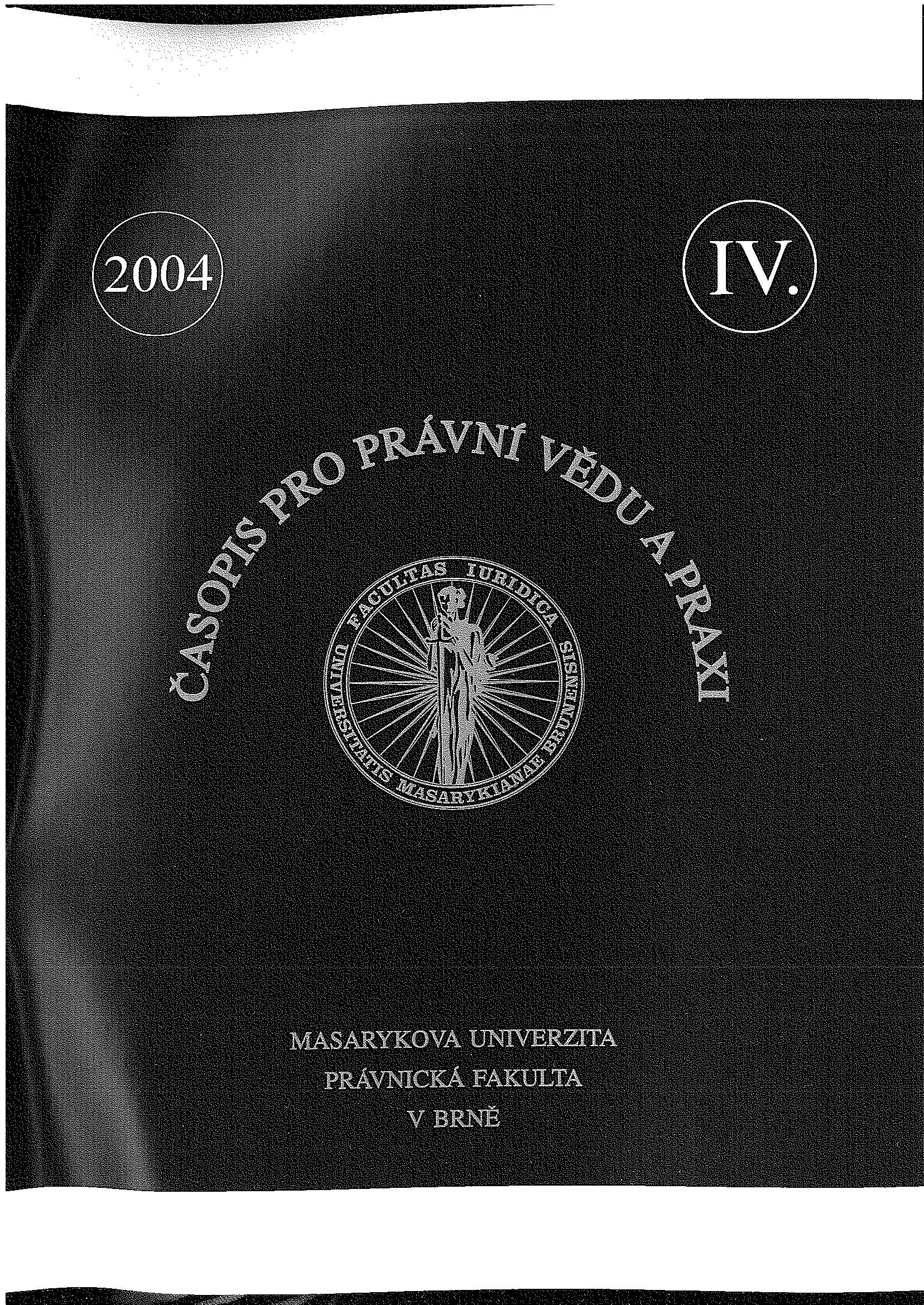
K obchodním závazkovým vztahům
The Commercial Code introduces general provisions that define the scope of the regulation and basic concepts.
More...We kindly inform you that, as long as the subject affiliation of our 300.000+ articles is in progress, you might get unsufficient or no results on your third level or second level search. In this case, please broaden your search criteria.

The Commercial Code introduces general provisions that define the scope of the regulation and basic concepts.
More...
In recent decades, public law entities - especially states - have begun to intervene in the world trade market more and more. However, they are no longer a market regulator, but act as a trader. However, at first glance, it is clear that they are endowed with characteristics different from ordinary traders, which make it impossible for them to be fully assimilated. From a legal point of view, this situation causes complications. The basis of trading is formed by binding legal relations, in which both parties have an equal position (which is reflected in the resolution of disputes by a superior independent entity), but the state, which is not primarily intended to generate profit, retains a more favorable position over other traders. This situation can then make it difficult to resolve disputes fairly from these commitments. One of the possible ways to eliminate this problem is the so-called mix of arbitration, ie arbitration proceedings, where the disputing parties consist of a public law entity (eg the state) and a private entity.
More...
The European Communities has been working to modernize competition law since 1997. In connection with this effort, a number of communications, regulations and work programs have been adopted within the European Communities, and these trends continue to this day. For the Czech Republic, these facts became important in connection with the accession negotiations and subsequently with its accession to the European Union.
More...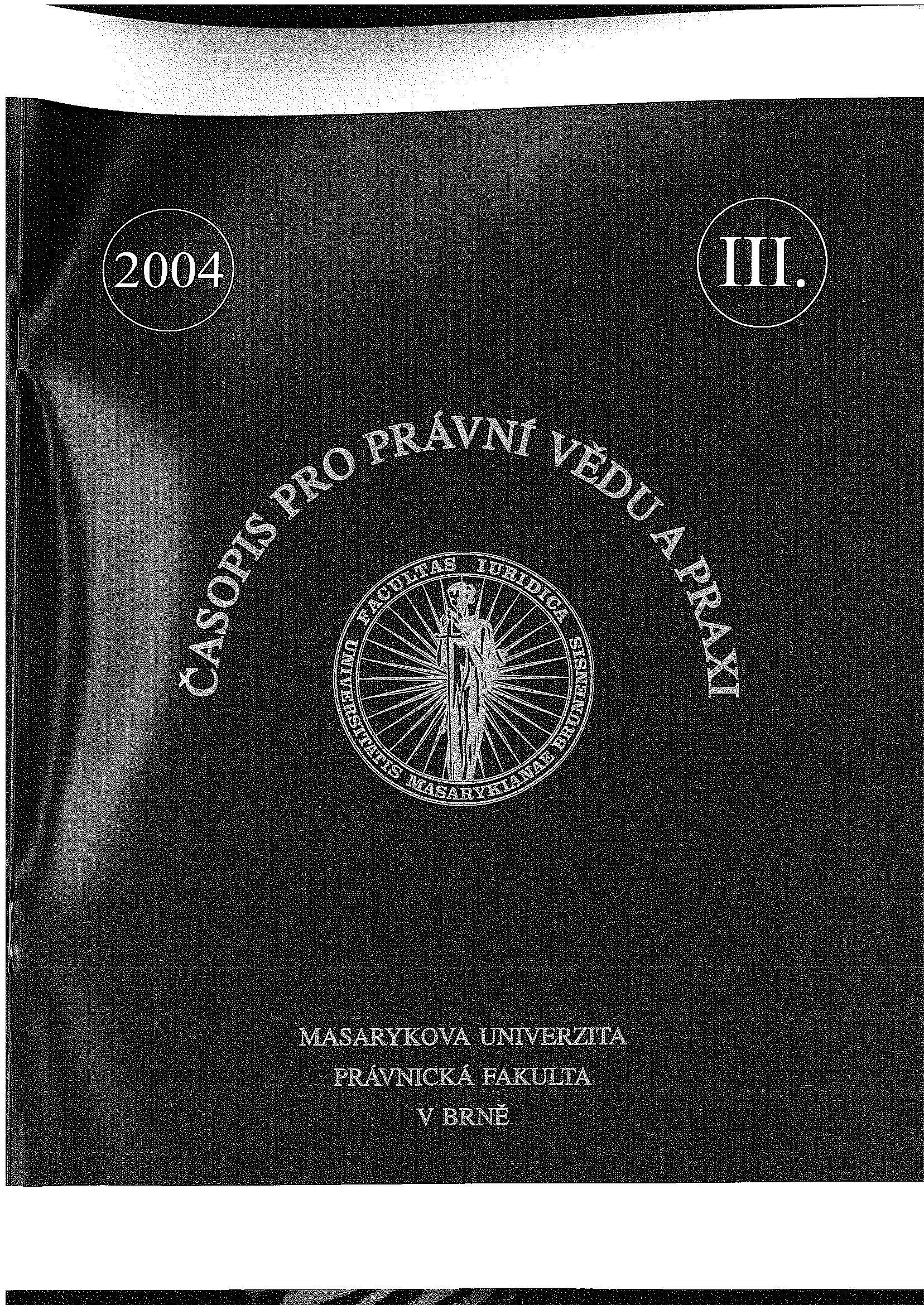
The open procedure is open to an unlimited number of tenderers who submit a tender on the basis of conditions set by the contracting authority, which are published. It is rated as the most transparent; however, it is the most organizationally demanding. If the award is in an open tender procedure, then all tenderers may submit a tender. In a restricted procurement procedure, only suppliers designated by the contracting authority submit a tender. In the negotiated procedure with publication, only invited suppliers submit a tender, which are then invited by the contracting authority to negotiate. A negotiated procedure without publication is then an award in which the contracting authority invites one or more suppliers to act.
More...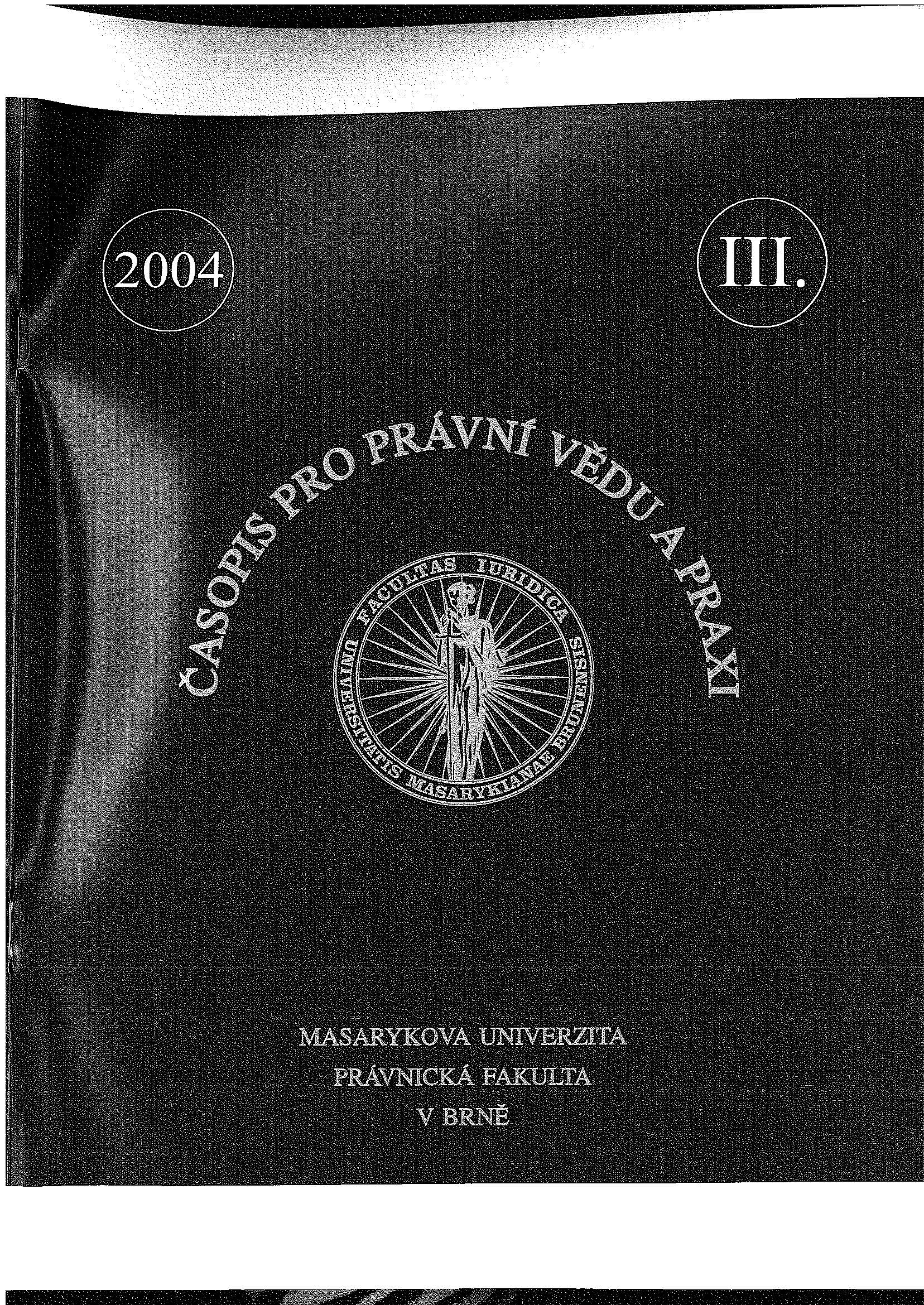
In February of this year, a new Act No. 40/2004 Coll. Was issued. called Public Procurement. The former Act No. 199/1994 Coll., On the award of public contracts (which was repealed by Act No. 40/2004 Coll.) Entered into force on 1 January 1995. This Act was amended twelve times.
More...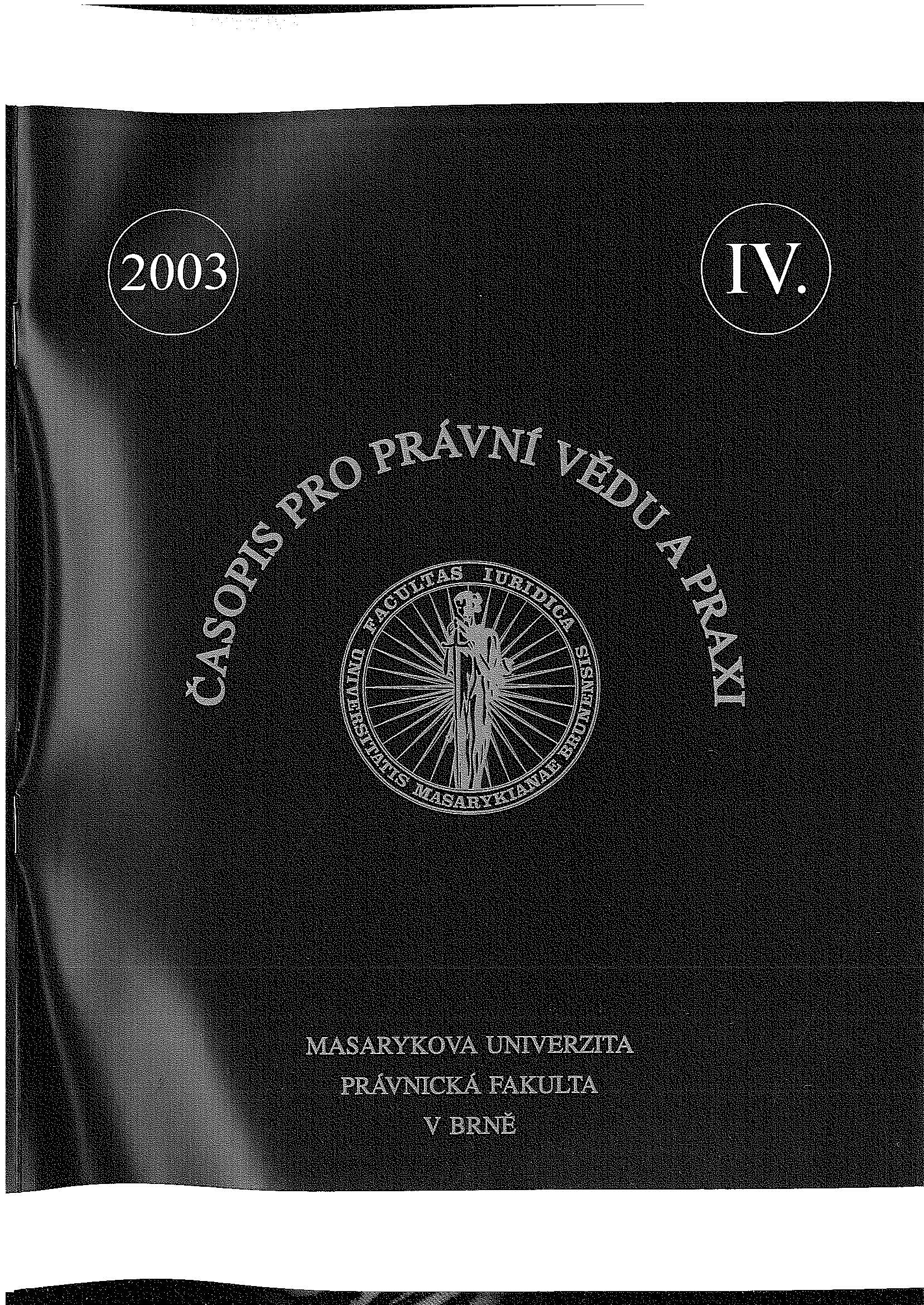
In my contribution, I assume that the basis or characteristic content element of the franchise agreement is a license agreement that relates to the use of foreign intellectual property. Without it, whatever its ideal subject, such as "just" kitchen and sales know-how, the franchise itself would not be able to fulfill its economic purpose and would be without significant economic and legal significance. The emphasis on the licensing nature of a franchise agreement - but also distinguished by an arrangement specific to a work or agency or lease agreement - is the economic importance of intellectual property; and not just industrial property, which is usually the most involved.
More...
The traditional treatment of the issue of advertising under the law of unfair competition shows that advertising in any unfair form was a very widespread unfair competition practice. The then legislator conceived "misleading advertising" and other forms of unfair competition advertising more practically than the current legislator. He named the specific factual matter "deceitful advertising" and included it in the law just below the general clause.
More...
The terms "contracting" and "contract" have a long history. Although there is no doubt that the market-economic significance of the agreement is considerable, the controversy over traditional concepts continues in the sphere of its legal regulation. Emerging circumstances bring innovation to contract law. The ways and methods of concluding contracts force us to revise some hitherto unchanged traditional dogmas: constructions and models, which currently require a more precise and concise definition or formulation. Rapidly evolving technical progress, the continuing pace of continuing globalization, and the urgent need to facilitate and streamline the process of concluding business transactions bring their correctives to the regulation of the institute of contract law. The question remains, what changes and surprises will the future bring us based on the above-mentioned circumstances. This article deals with several issues of concluding contracts under Czech private law, but at the same time the comparative method is used in the text.
More...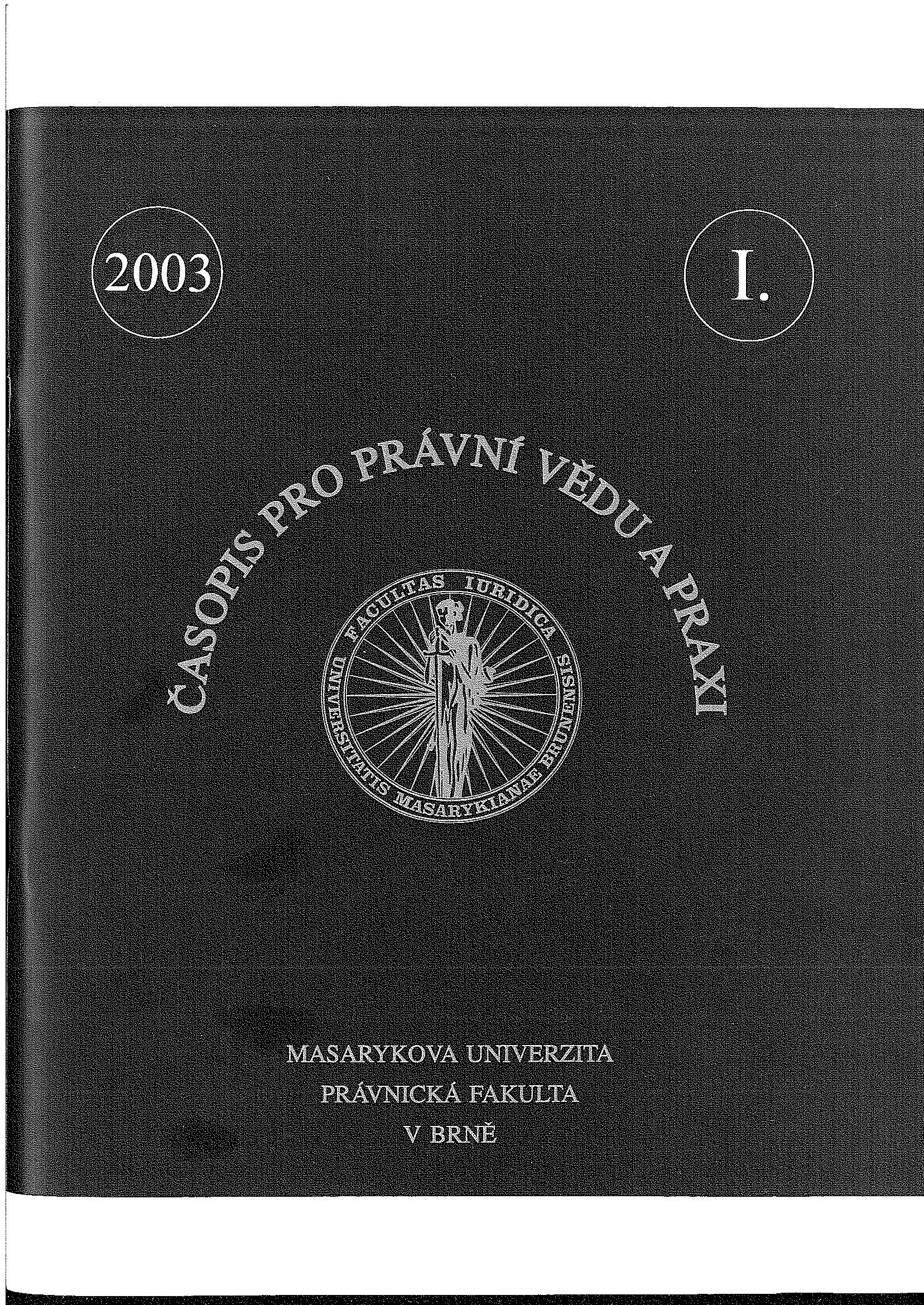
The consequences of trade agreements should not be reminiscent of the outcome of a football match, where the victory of one party in a ratio of 3: 0 means the defeat of the other party in the same ratio. Game theory states that the right contract is based on a "win-win strategy" - both cooperating opponents win (gain benefits). The concept of contracting - at least as linguists claim - is not derived from the word "contra" but from the Latin word "cum trahere".
More...
According to our findings, the title types of contract types are quite often used in practice. The mandate agreement is regulated by the provisions of § 566 to § 576 of the Commercial Code; the provisions of the commission contract are directly related to it in § 577 to § 590 of the Commercial Code.
More...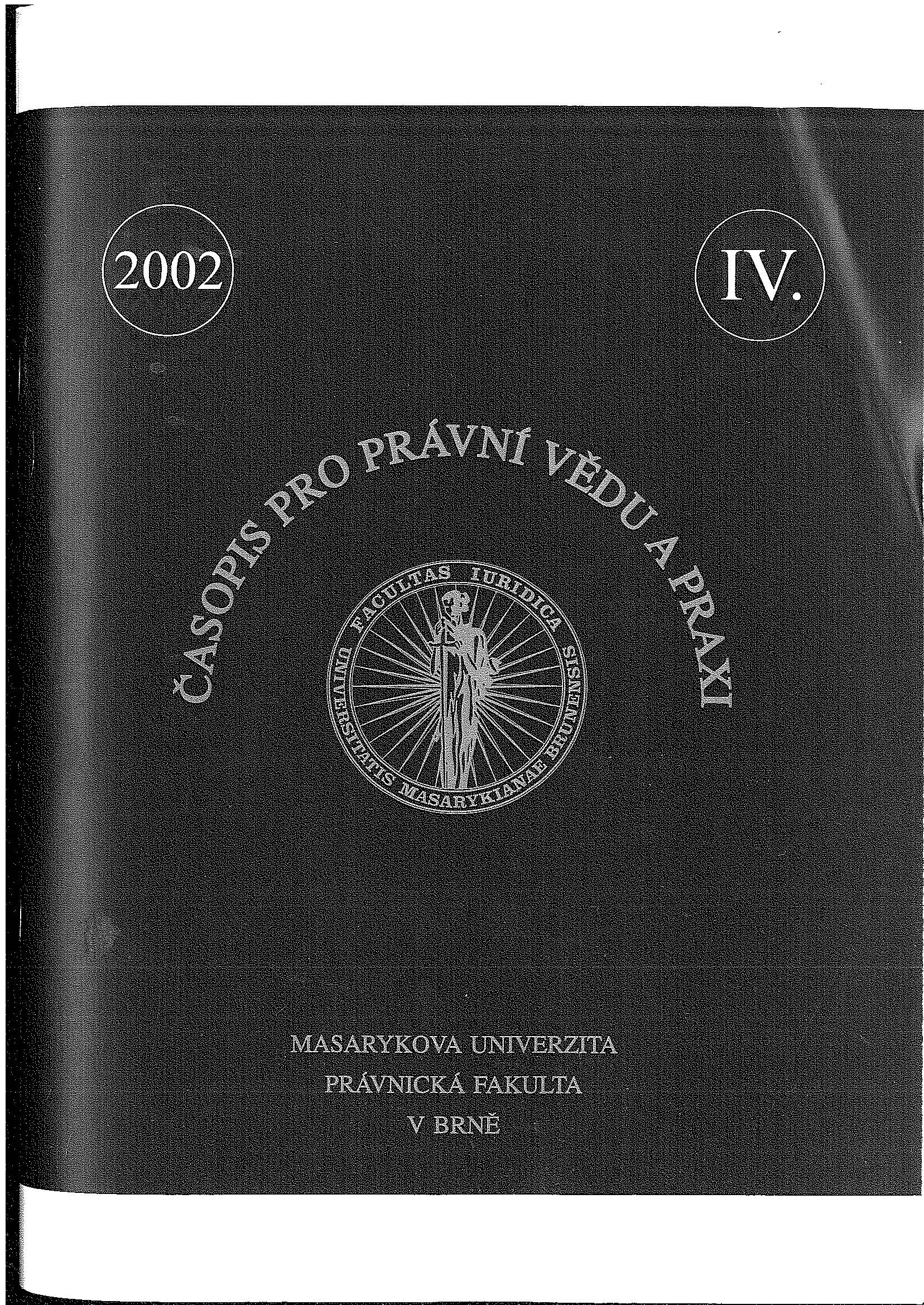
In issue 2/2001 of the Journal of Jurisprudence and Legal Practice on page 128, ie. at the very end of the article "The state as the subject of ownership and other property rights in the new legal regulation (selected issues I)", there was a mention of a future separate article devoted to the "vertical" issue of exercising ownership and other property rights of the state. Time, resp. however, the development of legislation in this area requires that the matter be taken a little more broadly. This means that other (new) issues raised by the development in question will also be discussed below. At the same time, I will try not to "go around" too much of the (cum licentia "vertical") issue of exercising the property rights of the state.
More...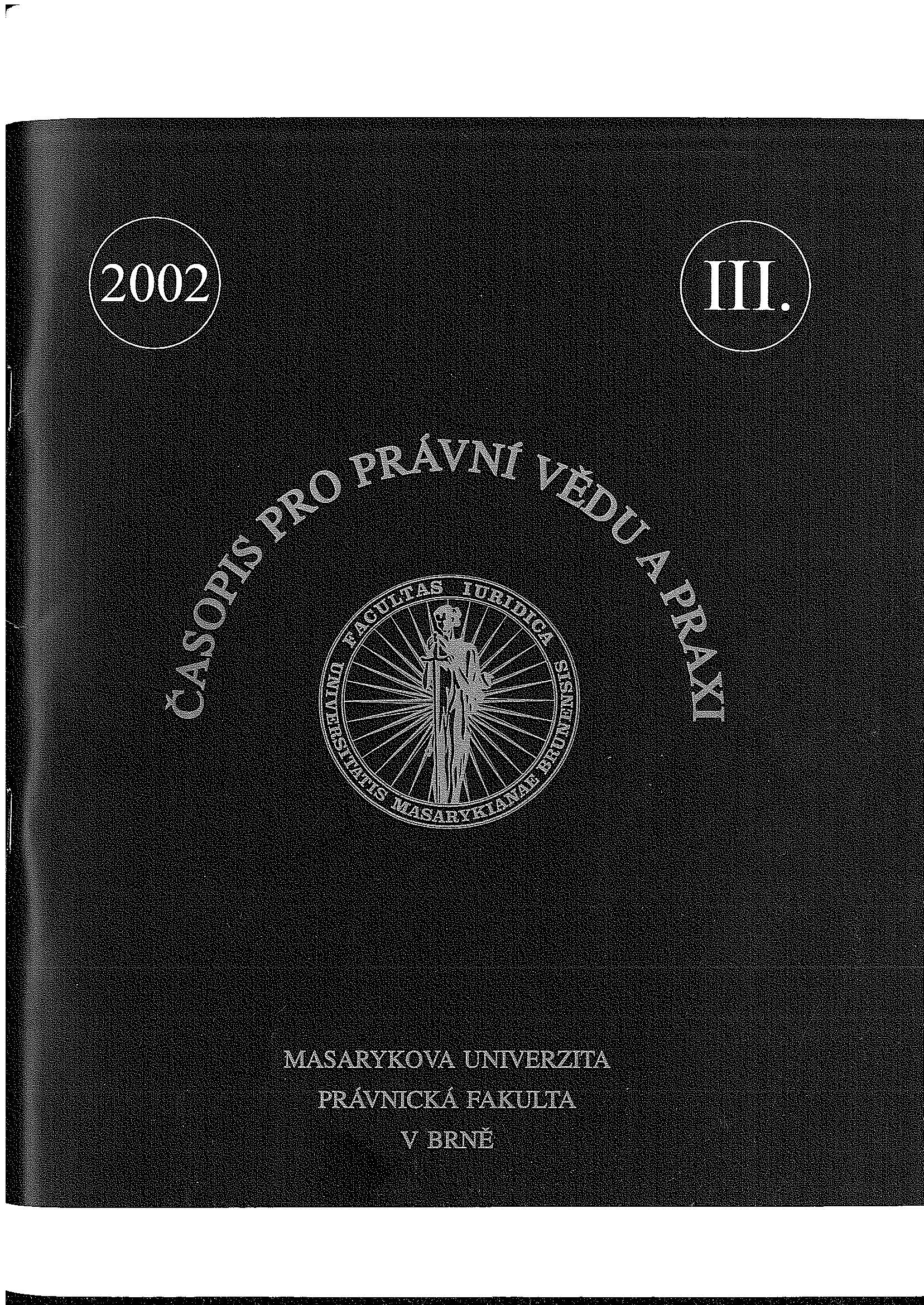
The contríbution deals with the relation of intellectual property rights to competition law. Support of innovation is based on creating an innovator's monopoly which can harm economic competition. Knowledge-based high-tech economy calls for such a monopolization. Some basic differences between intellectual property and real property and some more frequent kinds of misusing intellectual property rights are introduced. The author joins the opinion that the conflict between protection of innovations and protection of competition is to be solved by providing legal monopoly power, but only within the defined limited scope of the right.
More...
The law concerning bankruptcy and composition presupposes existence of several ways of the bankruptcy assets property monetization. The bankruptcy assets can be turned into cash either using the procedure following the law concerning public auctions, or by the free hand sale, or according to the relevant provisions of the civic legal order concerning the decision performance. The choice of the particular way of monetization depends on the object to monetize. The basic criteria for determining the way of monetization should be quickness, transparency, and maximization of the bankruptcy assets monetization gains. The article mentions procedures of bankruptcy assets monetization including related problems.
More...
The Bill of Exchange and Check Act establishes an information obligation of the participants in the bill of exchange relations in three cases: First of all, it is an obligation to prosecute the participants in the bill of exchange intervention. Given the minimal importance of intervention today, the notification obligation that we will encounter with a bill of exchange in the event of force majeure will be of greater importance. However, the third - and by far the most important in practice - information obligation is regulated in connection with the bill of exchange. The following article is devoted to this often neglected issue in current practice.
More...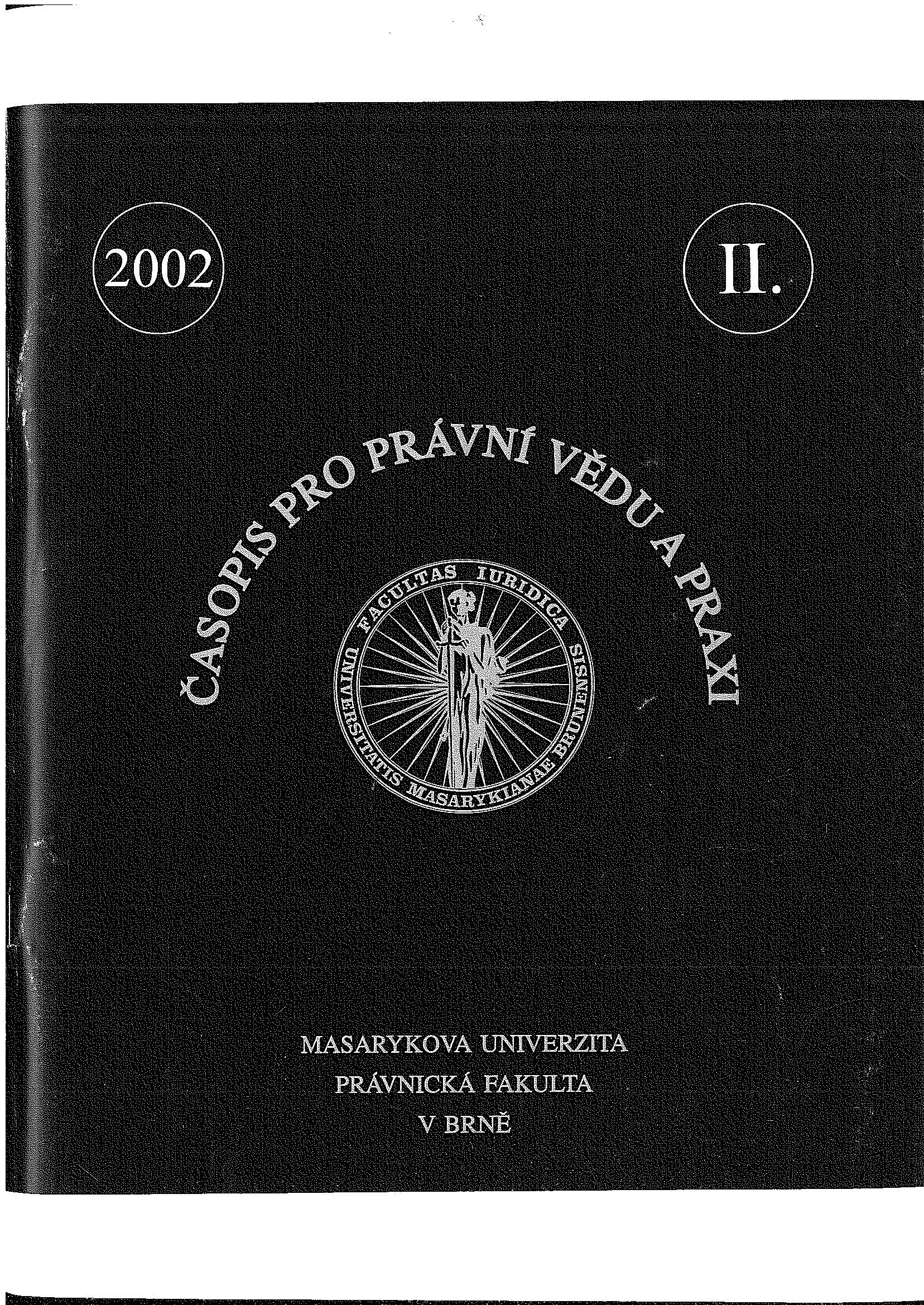
This article deals, on the one hand, with the codification of void resolution de lege lata under the Commercial Code after the amendment No. 501/2001 CoL, on the other hand with the codification void resolution in some special acts. It deals both with the substance and meaning of the codification, with its interpretation and with the controversial issues produced by this codification. Primary attention in this context is afforded the considerable interpretation problems connected therewith, in particular in relation on the basic principle on the basic principle of Czech private law, with the principle of morality. The principal problem, in the author's opinion, is the narrowly positivist approach of contemporary judicial practice, often with the tendency to narrowminded formalism which, in its consequences, jeopardizes justified claims and rights of the persons acting in good face and trust in the rule of law.
More...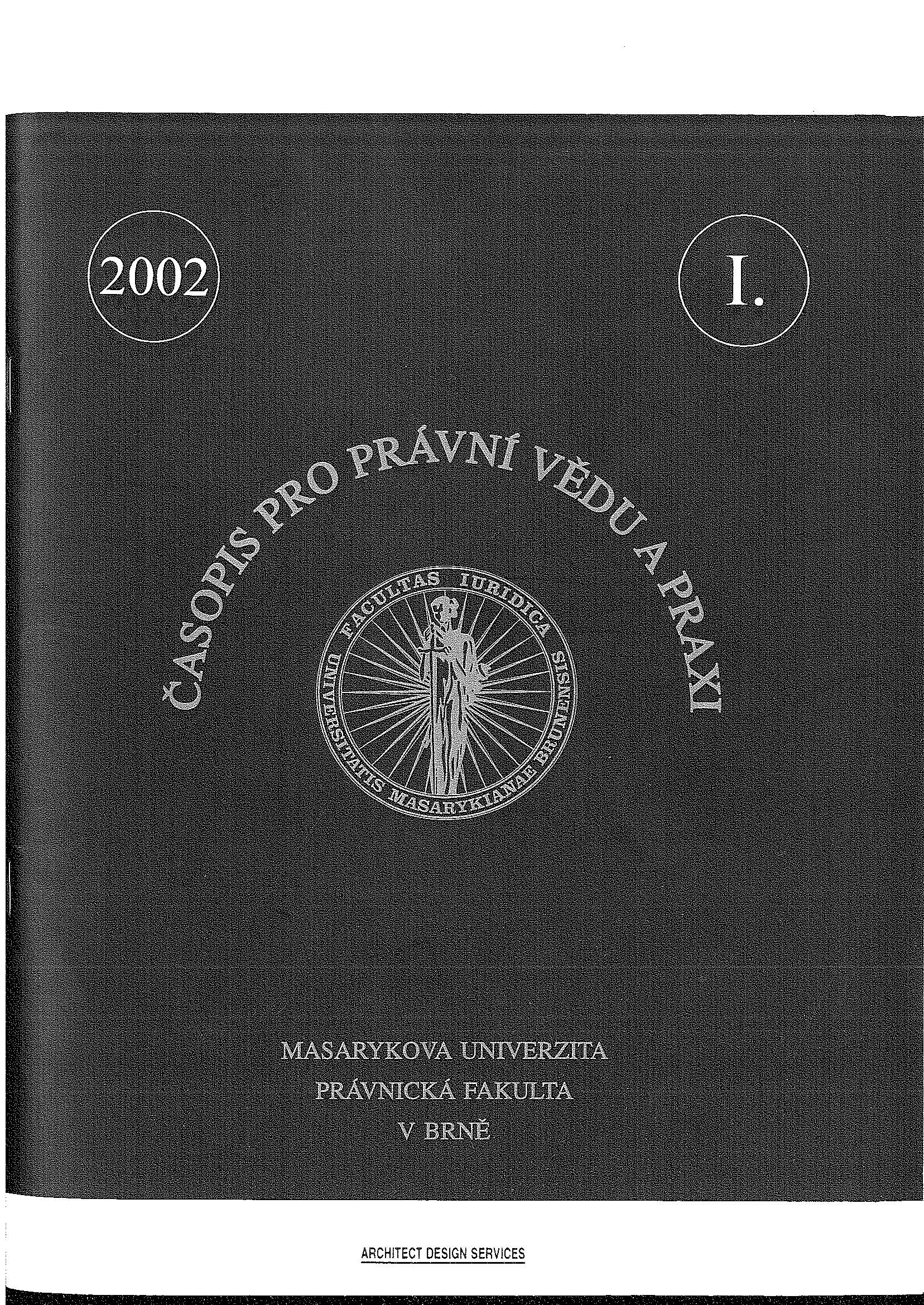
Takeover bids, ie public proposals for the purchase of participating securities, which will allow the petitioner to control the company, are among the most interesting phenomena of economic and legal life. Especially in Anglo-Saxon countries, they are a common means of controlling corporations (so-called target companies). But the continent is not far behind either; in 1990, the volume of takeover bids was higher for the first time than in the UK, and has been steadily increasing since then.
More...
Monetization of bankruptcy assets is a very important part of bankruptcy proceedings, and it is precisely the result of monetization that can significantly affect the level of satisfaction of individual creditors. Since this article is devoted to the issue of monetization of bankruptcy assets, it is necessary to first explain what monetization of bankruptcy assets is. Monetization of bankruptcy assets is the transformation of bankrupt assets into money. At the same time, we can say that it is a transformation of any property value into money, in other words, it will not be possible to monetize only money, because their transformation is conceptually excluded. However, monetization will also mean the assignment of a receivable for a consideration that will be lower than the nominal value of the assigned receivable.
More...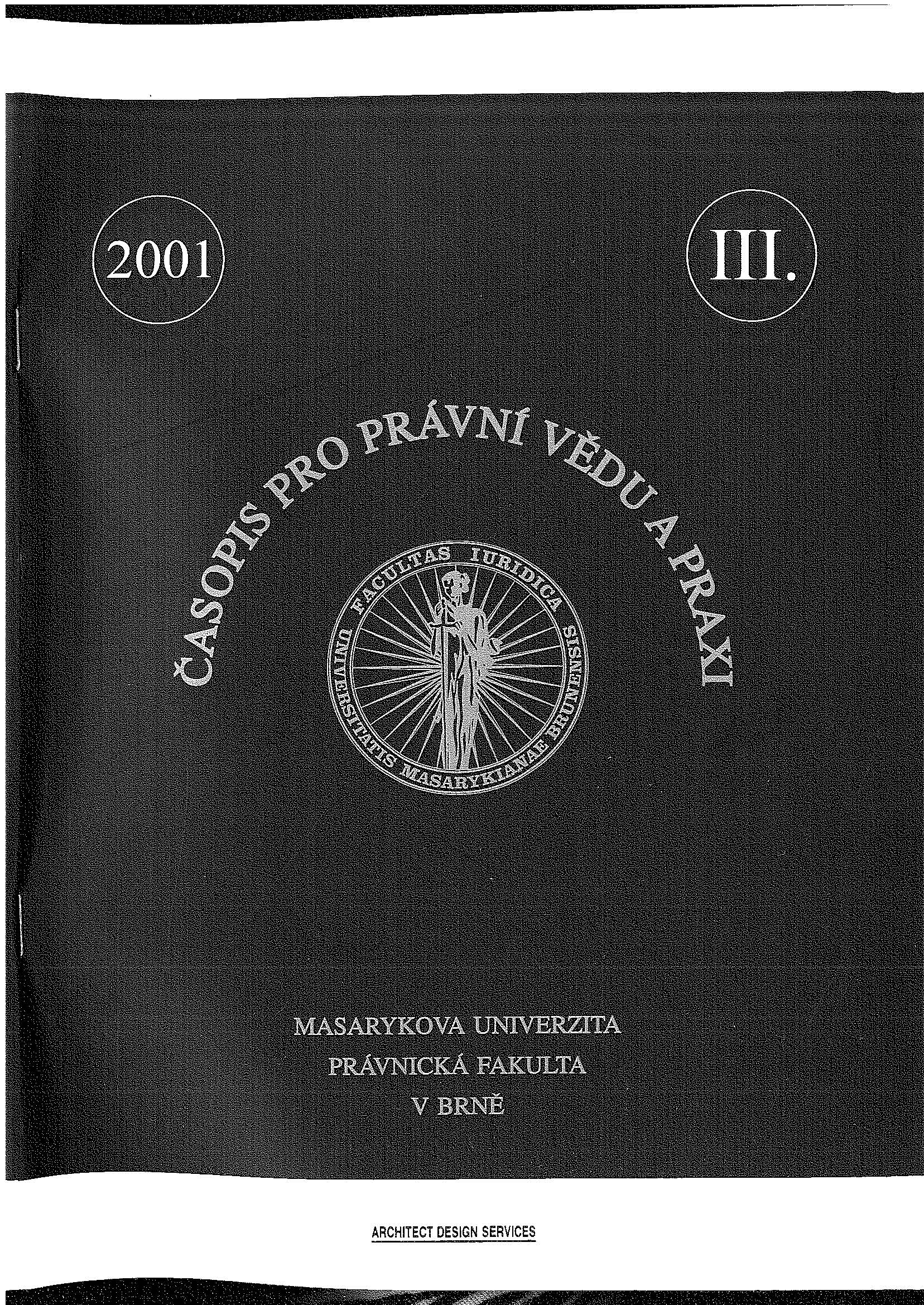
An advantageous position in the economic competition is determined by the advantage in a competitor's knowledge and skills that she is able to gain and keep over the other competitors. Such an advantage can be gained both by creative and parasitic activities. A large number of factual and legal means are applied against the parasitic activities. The legal means can be further divided into the public law means and the private law means, in particular the contract law and the law dealing with unfair competitíon. In this context, trade secret protection is a special competitive means. The definítion of trade secret both within the law and in the economic practice is a very difficult issue. Dealing with this issue, the author is in favour of a certain overlapping of the theory of will and the theory of in terest. The businessperson's will can be displayed also by the following clause incorporated into a company's directives: "The term of trade secret refers to all facts that the employees have to, given their qualifications and job titles, suppose that the employer has an objective interest to keep secret."
More...
This article deals with the basic principles of a draft. Drafts are called three-party instruments. The person signing a draft, the drawer, issues or draws an instrument which unconditionally orders someone, the drawee, to pay a sum to the payee. Thus, the third party to a draft, the drawee, is the party to whom the payee initially looks for its payment. After a brief historícal survey of developments of a draft, the analysis of an economic and legal importance of this instrument follows. Although drafts are three-party instruments, the three parties do not all have to be different (e.g. the drawer and the drawee as well as the drawee and the payee may be the same person as well). Author opens the interesting question, whether the drawer, drawee and the payee may be the same person or business, and gives reasons for his negative opinion on this issue. The second part of the article presents substantial requirements for a draft. Special attention is paid to the maturity of a draft, which in practice is the most often reason of disputes.
More...
At the moment of posting the resolution on the declaration of bankruptcy on the official notice board of the court, the debtor becomes a bankrupt who no longer loses the opportunity to dispose of his property freely. At this moment, the bankrupt's assets begin to represent bankruptcy assets, while the right to dispose of the assets of the assets is transferred to the administrator. The bankrupt's legal acts relating to these assets are ineffective against bankruptcy creditors.
More...